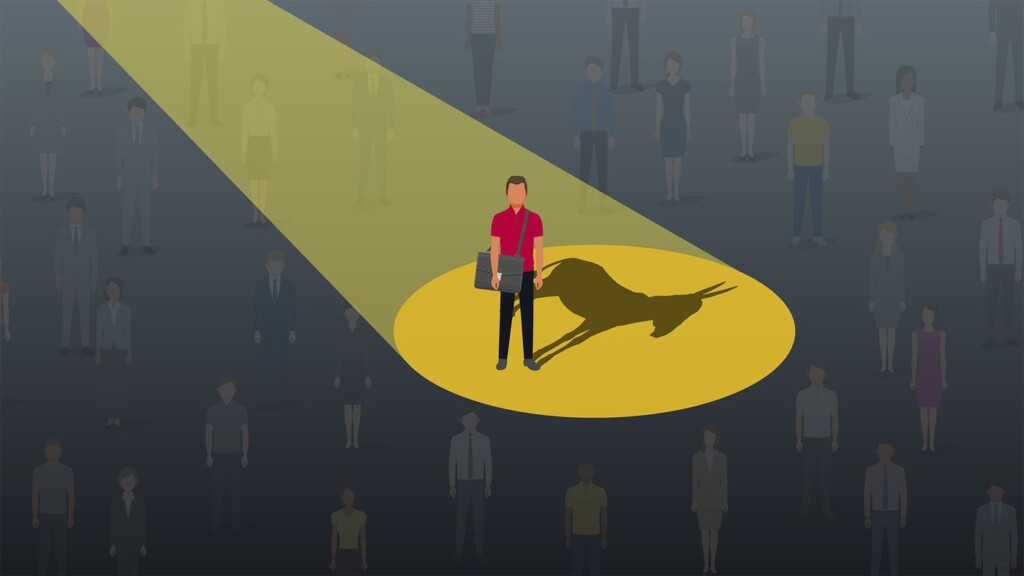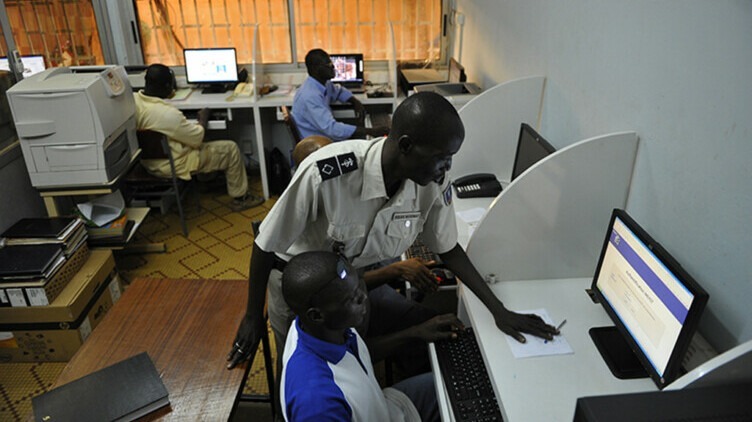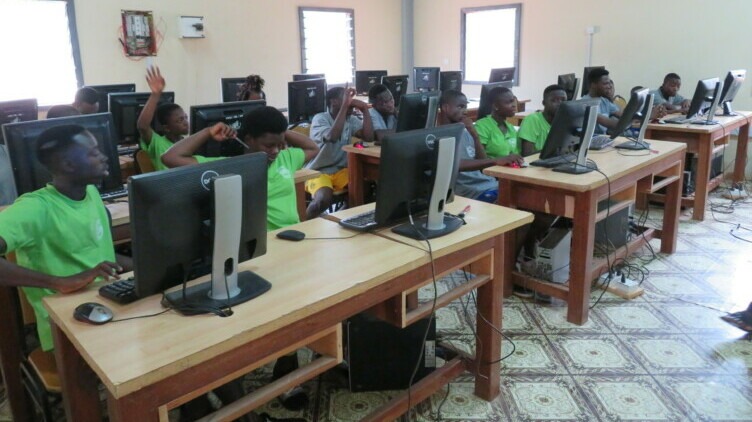The Ghana Scammers Game Is Alive And Well
By Thomson Reuters Foundation, with comments by the SCARS Editorial Team
Ghanaian Scammers – Youth Fall Out Of Poverty As Romance Scammers – But That Is No Justification For Criminality
SCARS Comment: While this may be true, people struggle everywhere to make a living and the vast majority of them do it honestly! There is never an excuse in being poor and turning to crime! This is true for Ghana scammers, and cybercriminals everywhere else.
Ghana Scammers
Qasim, who lives in Accra, the capital of Ghana, was nicknamed “Starflex” as a teenager as the ace striker of the school’s soccer team.
But now, at 22, he is a Ghana scammer and has abandoned his studies and football and earns his living by finding and luring victims of international romance scams online all night.
In the bedroom, Starflex and his friends Suleiman, 19, and Patrick, 18, huddled around their phones and laptops, exchanging intimate messages with potential victim “friends” they met on dating sites.
She travels across Facebook and Instagram to disrespect [steal] photos of influencers and actresses, create fake accounts on dating sites, and lure men looking for marriage partners.
Starflex told the Thomson Reuters Foundation that it “maintains accounts by using photos and videos of people shopping, cooking, and playing with friends.”
In Ghana, young school dropouts are increasingly stealing personal information on social media and engaging in international romance scams as Ghana scammers.
According to Ghana’s cybersecurity authorities, the cost of identity fraud so far this year has reached an estimated 49.5 million cedi (about 640 million yen) [USD$4,382,060].
Starflex poses as Joan, a 23-year-old graduate girl from Turkey, chatting with an American real estate agent she met on a dating site. The real estate agent believes that Joan’s parents died of the new coronavirus and is willing to pay $5,000 (about 730,000 yen) in tuition fees to prevent her from being deported.
Starflex said, “They send $500 a month from the U.S. for living expenses, is there a job in Ghana where they can earn $50 a day?” I smile. The money sent is cashed in a virtual currency wallet and shared with fellow scammers on a shift system.
The spread of these scams is backed by decades of economic crisis in Ghana. Poverty persists, and youth unemployment exceeds 30%.
“In the slums around Accra, 8 out of 10 children are scammed,” said Kwadou Agemam, an IT teacher in Accra’s public schools. “Just look at their phones and you’ll find nude photos online that they use to seduce men.”
Source: https://jp.reuters.com/article/ghana-tech-crime-idJPKBN2ZR08Z
The Pain Of Poverty For Ghana Scammers
Starflex and Suleiman grew up in the impoverished neighborhoods around Accra. Both said they were forced to support themselves as teenagers due to financial hardship and engaged in fraud.
When his father suffered a stroke and his mother, who ran a small business, was running out of enough money to feed the family, Suleiman was lured into a fraudulent group of Ghana scammers by Starflex.
“It was hard to go to school, there was no money for breakfast or lunch,” he said. “Starflex said he was pulling money from white people, and he could make money by imitating it,” he said.
In July, the government launched a nationwide school program to teach students about social media use and cyber risks.
Ghana and Nigeria have stepped up their efforts to tackle cross-border crime, particularly cybercrime such as online fraud. Both countries have cyber laws in place and conduct regular investigations, but charges are rare, according to Mike Roberts, founder of Rexfield, who specializes in cybercrime investigations. “The greatest deterrent to fraud is justice, and if you don’t think you can fool people and get caught, you won’t stop scamming,” he said.
Ghana Scammer Tactics
In a 2022 report, Ghana’s cybersecurity authority found that identity theft accounted for the majority of online fraud detections, attributing it to the ease of creating social media accounts.
Sean Gallagher, a researcher at Sophos X-Ops, a British cybersecurity firm, pointed out that scammers in Ghana and other West African regions are mimicking Chinese romance scam techniques, such as sending money using crypto accounts.
According to him, there is a market to buy and sell hacked Facebook and Twitter (now X) accounts, which can be purchased with cryptocurrencies and cash.
In some cases, photos copied from other social media accounts are used to create perfect profiles, a system that has already reached the industrial level.
Tina, a 57-year-old single mother who owns a medical billing company in New York State, met a gem expert on a dating site called Ray Dixon in 2019. He was told he needed money for airline tickets, rent, and living expenses, and was defrauded of a total of $200,000 for more than two years.
“I borrowed money from friends and banks, and stopped sending money when I lost everything.” Roberts is working with law enforcement and others to investigate and track down her Ghana scammers to help Tina get her money back. The chase revealed that it was a criminal network in Ghana that carried out the scam.
Suleiman says he falls into self-loathing when he thinks of women like Tina. He is determined to wash his feet from fraud within a year and sets aside $200 a month to go to college. Still, he said, “I have no other choice at the moment, because I have to take care of my sick father and help my mother.”
SCARS Editorial Note
While poverty is real it is no excuse for these crimes that Ghana scammers engage in. We do not care if they feel bad, because they are choosing to cause real harm to real people. One part of the proof of this is in the way Ghana scammers scam their fellow countrymen and women. They are especially brutal when it comes to scammer people in their own country too.
Poverty is the ‘go to” excuse for all West African and Ghana scammers. As though being a criminal is their only choice. All around the world people create businesses with just a few pennies, but because scamming is so easy they don’t even try to do something that is not criminal. Being a Ghana scammer is their first choice as soon as it is presented.
Every criminal has an excuse for what they do, and Ghana scammers are no exception. Just like those in Nigeria, it is always someone else’s fault that they became a criminal. But it is vital that we all reject this excuse and recognize that this was a personal choice.
SCARS Resources:
- For New Victims of Relationship Scams newvictim.AgainstScams.org
- Subscribe to SCARS Newsletter newsletter.againstscams.org
- Sign up for SCARS professional support & recovery groups, visit support.AgainstScams.org
- Find competent trauma counselors or therapists, visit counseling.AgainstScams.org
- Become a SCARS Member and get free counseling benefits, visit membership.AgainstScams.org
- Report each and every crime, learn how to at reporting.AgainstScams.org
- Learn more about Scams & Scammers at RomanceScamsNOW.com and ScamsNOW.com
- Global Cyber Alliance ACT Cybersecurity Tool Website: Actionable Cybersecurity Tools (ACT) (globalcyberalliance.org)
- Self-Help Books for Scam Victims are at shop.AgainstScams.org
- Donate to SCARS and help us help others at donate.AgainstScams.org
- Worldwide Crisis Hotlines: International Suicide Hotlines – OpenCounseling : OpenCounseling
- Campaign To End Scam Victim Blaming – 2024 (scamsnow.com)
More:
- Ghana Scammer Study – Rationalizing Online Romance Fraud (romancescamsnow.com)
- Save Me From A Life In Crime – Romance Scams (romancescamsnow.com)
- Spotting Ghana Scammers – Ghanaian Words & Phrases (romancescamsnow.com)
- Ghana & Africa: How Some Academics View Scamming (romancescamsnow.com)
- SCARS Identifies Ghana Scammer Cartel of Over 4,000 Working Scammers (romancescamsnow.com)
- SCARS™ Guest Editorial: Sakawa Boys (Ghanaian Internet Scammer Gangs) (romancescamsnow.com)
- SCARS™ Special Report: Ghana Scam Revelation [Videos] (romancescamsnow.com)
- The Culture Of Scamming – Ghana Scammers Go To Church That Endorses Scams (romancescamsnow.com)
- Special Report: Scammers Run A University in Ghana (romancescamsnow.com)
More ScamsNOW.com Articles
-/ 30 /-
What do you think about this?
Please share your thoughts in a comment below!
SCARS LINKS: AgainstScams.org RomanceScamsNOW.com ContraEstafas.org ScammerPhotos.com Anyscam.com ScamsNOW.com
reporting.AgainstScams.org support.AgainstScams.org membership.AgainstScams.org donate.AgainstScams.org shop.AgainstScams.org
youtube.AgainstScams.org linkedin.AgainstScams.org facebook.AgainstScams.org
One Comment
Leave A Comment
TABLE OF CONTENTS
CATEGORIES
![NavyLogo@4x-81[1] The Ghana Scammers Game Is Alive And Well](https://scamsnow.com/wp-content/uploads/2025/04/NavyLogo@4x-811.png)
ARTICLE META
Important Information for New Scam Victims
- Please visit www.ScamVictimsSupport.org – a SCARS Website for New Scam Victims & Sextortion Victims.
- SCARS Institute now offers its free, safe, and private Scam Survivor’s Support Community at www.SCARScommunity.org – this is not on a social media platform, it is our own safe & secure platform created by the SCARS Institute especially for scam victims & survivors.
- SCARS Institute now offers a free recovery learning program at www.SCARSeducation.org.
- Please visit www.ScamPsychology.org – to more fully understand the psychological concepts involved in scams and scam victim recovery.
If you are looking for local trauma counselors, please visit counseling.AgainstScams.org
If you need to speak with someone now, you can dial 988 or find phone numbers for crisis hotlines all around the world here: www.opencounseling.com/suicide-hotlines
Statement About Victim Blaming
Some of our articles discuss various aspects of victims. This is both about better understanding victims (the science of victimology) and their behaviors and psychology. This helps us to educate victims/survivors about why these crimes happened and not to blame themselves, better develop recovery programs, and help victims avoid scams in the future. At times, this may sound like blaming the victim, but it does not blame scam victims; we are simply explaining the hows and whys of the experience victims have.
These articles, about the Psychology of Scams or Victim Psychology – meaning that all humans have psychological or cognitive characteristics in common that can either be exploited or work against us – help us all to understand the unique challenges victims face before, during, and after scams, fraud, or cybercrimes. These sometimes talk about some of the vulnerabilities the scammers exploit. Victims rarely have control of them or are even aware of them, until something like a scam happens, and then they can learn how their mind works and how to overcome these mechanisms.
Articles like these help victims and others understand these processes and how to help prevent them from being exploited again or to help them recover more easily by understanding their post-scam behaviors. Learn more about the Psychology of Scams at www.ScamPsychology.org
SCARS INSTITUTE RESOURCES:
If You Have Been Victimized By A Scam Or Cybercrime
♦ If you are a victim of scams, go to www.ScamVictimsSupport.org for real knowledge and help
♦ SCARS Institute now offers its free, safe, and private Scam Survivor’s Support Community at www.SCARScommunity.org/register – this is not on a social media platform, it is our own safe & secure platform created by the SCARS Institute especially for scam victims & survivors.
♦ Enroll in SCARS Scam Survivor’s School now at www.SCARSeducation.org
♦ To report criminals, visit https://reporting.AgainstScams.org – we will NEVER give your data to money recovery companies like some do!
♦ Follow us and find our podcasts, webinars, and helpful videos on YouTube: https://www.youtube.com/@RomancescamsNowcom
♦ Learn about the Psychology of Scams at www.ScamPsychology.org
♦ Dig deeper into the reality of scams, fraud, and cybercrime at www.ScamsNOW.com and www.RomanceScamsNOW.com
♦ Scam Survivor’s Stories: www.ScamSurvivorStories.org
♦ For Scam Victim Advocates visit www.ScamVictimsAdvocates.org
♦ See more scammer photos on www.ScammerPhotos.com
You can also find the SCARS Institute’s knowledge and information on Facebook, Instagram, X, LinkedIn, and TruthSocial
Psychology Disclaimer:
All articles about psychology and the human brain on this website are for information & education only
The information provided in this and other SCARS articles are intended for educational and self-help purposes only and should not be construed as a substitute for professional therapy or counseling.
Note about Mindfulness: Mindfulness practices have the potential to create psychological distress for some individuals. Please consult a mental health professional or experienced meditation instructor for guidance should you encounter difficulties.
While any self-help techniques outlined herein may be beneficial for scam victims seeking to recover from their experience and move towards recovery, it is important to consult with a qualified mental health professional before initiating any course of action. Each individual’s experience and needs are unique, and what works for one person may not be suitable for another.
Additionally, any approach may not be appropriate for individuals with certain pre-existing mental health conditions or trauma histories. It is advisable to seek guidance from a licensed therapist or counselor who can provide personalized support, guidance, and treatment tailored to your specific needs.
If you are experiencing significant distress or emotional difficulties related to a scam or other traumatic event, please consult your doctor or mental health provider for appropriate care and support.
Also read our SCARS Institute Statement about Professional Care for Scam Victims – click here
If you are in crisis, feeling desperate, or in despair, please call 988 or your local crisis hotline – international numbers here.
More ScamsNOW.com Articles
A Question of Trust
At the SCARS Institute, we invite you to do your own research on the topics we speak about and publish. Our team investigates the subject being discussed, especially when it comes to understanding the scam victims-survivors’ experience. You can do Google searches, but in many cases, you will have to wade through scientific papers and studies. However, remember that biases and perspectives matter and influence the outcome. Regardless, we encourage you to explore these topics as thoroughly as you can for your own awareness.
























![scars-institute[1] The Ghana Scammers Game Is Alive And Well](https://scamsnow.com/wp-content/uploads/2025/04/scars-institute1.png)

![niprc1.png1_-150×1501-1[1] The Ghana Scammers Game Is Alive And Well](https://scamsnow.com/wp-content/uploads/2025/04/niprc1.png1_-150x1501-11.webp)
I enjoyed the editorial bent at the end of this article and couldn’t agree more.